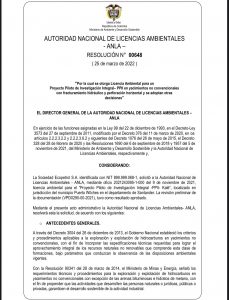Enrique Mendez
Newspaper La Jornada
Monday, March 28, 2022, p. 3
Pressured by the lack of agreements, the Chamber of Deputies has until April to fulfill nine mandates from the Supreme Court of Justice of the Nation (SCJN), which force it to legislate on matters such as the suspension of guarantees in case of national emergencies, stuck since nine years ago.
Among the issues in the legislative freeze, and that could remain unfulfilled, are conscientious objection in health matters, the social communication law, the use of force and maximum salaries for officials.
The General Secretariat of the chamber presented to the Political Coordination Board a text with the legislative priorities to be fulfilled by judicial mandate. Of the 15 issues resolved by the ministers, the deputies have only resolved four.
One is the Federal Law for the Revocation of the Presidential Mandate; The other three, which were sent to the Senate and remain unresolved, are the federal law for the regulation of marijuana consumption, in matters of racial hatred, and the law of prior consultation with indigenous and Afro-Mexican peoples and communities.
By April 14 at the latest, the chamber must resolve a court mandate to approve a code of ethics and audience rights for radio and television licensees.
And, no later than April 30 – date on which the ordinary period ends – modifications to the National Code of Civil and Family Procedures, in matters of daily justice; the general law of social communication, to which an extension had already been authorized for its approval; and changes to the National Law on the Use of Force.
Likewise, resolve on the pension for widowhood to concubines of members of the armed forces, in addition to adjustments to the regulatory law of article 29 of the Constitution regarding the suspension of guarantees, to attend an amparo trial that was granted in Oaxaca.
The Court also reprimanded the chamber for the legislative omission in which it has incurred by not issuing a new general water law.
In addition, no later than September 30, it must approve changes to the General Education Law, based on an action of unconstitutionality that was filed in the area of indigenous and inclusive education.
In the case of the changes to article 10 bis of the General Health Law, the Court’s warrant did not include a deadline. In relation to the reform so that the Federal Institute of Telecommunications, and not the radio and television concessionaires, regulates the rights of the audiences, and the companies distinguish between information and opinion, the chamber will have 60 days to legislate from the time it is notified.

















